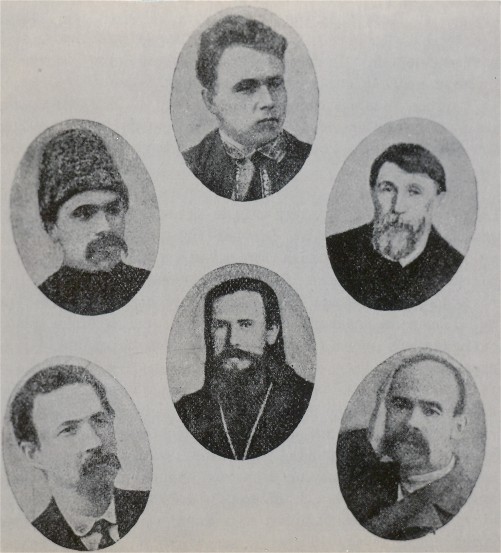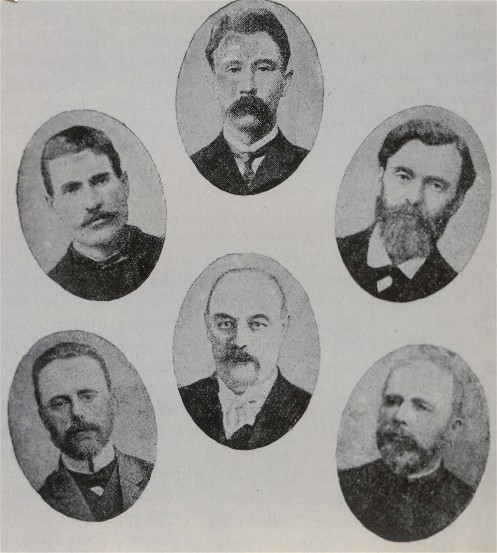Ukrainian caucus in the Russian State Duma
Ukrainian caucus in the Russian State Duma (Український парляментарний клюб; Українська думська/трудова громада; Ukrainskyi parliamentarnyi kliub; Ukrainska dumska/trudova hromada). The 497-member First Russian State Duma (1906) had 101 deputies from the nine Ukrainian gubernias, 63 of whom were nationally conscious Ukrainians. Most of the nationally conscious were peasants, and nearly half were members of the Ukrainian Democratic Radical party (UDRP) or the liberal Russian Constitutional Democratic party. To promote their goal of Ukrainian national-territorial autonomy and to represent more successfully Ukrainian national interests, 44 Ukrainian deputies from various parties constituted a caucus, the Ukrainian Parliamentary Club, chaired by Illia Shrah. The caucus was assisted by an advisory committee of leading Ukrainian intellectuals in Saint Petersburg belonging to the Society of Ukrainian Progressives; they established the caucus's organ, Ukrainskii vestnik (Saint Petersburg). In the Second Duma (1907) the more radical 47-member caucus, the Ukrainian Duma Hromada, demanded democratic freedoms, autonomy for all the non-Russian peoples of the Russian Empire, the use of the Ukrainian language and other national languages in civic and government institutions, the reform of zemstvo and municipal governments, the distribution of all land to the peasants, an eight-hour workday, the abolition of capital punishment, and the introduction of Ukrainian-language elementary schools and teachers' seminaries and of Ukrainian studies courses at Ukraine’s secondary schools and postsecondary schools. The caucus was advised by Pavlo Chyzhevsky, Petro Stebnytsky, Fedir Vovk, and Vasyl Domanytsky; Domanytsky edited the caucus’s Ukrainian-language organ, Ridna sprava – Dums’ki visti. Duma members from the Ukrainian Social Democratic Workers' party and Ukrainian Social Democratic Spilka (14 members) did not join the UDRP-dominated caucus, which they labeled petit bourgeois. Because of the tsarist reaction and suppression of organized Ukrainian life, the 25 Ukrainian deputies (most of them right-wing ‘Little Russians’) in the conservative Third (1907–12) and Fourth (1912–17) Dumas did not form a caucus. Some, however, supported Mykola Onatsky’s 1908 draft bill to introduce the Ukrainian language as the language of instruction in elementary schools, and protested against the banning of public commemorations of the centenary of Taras Shevchenko’s birth and the tsarist repressions in Galicia in 1914.
Roman Senkus
[This article originally appeared in the Encyclopedia of Ukraine, vol. 5 (1993).]

